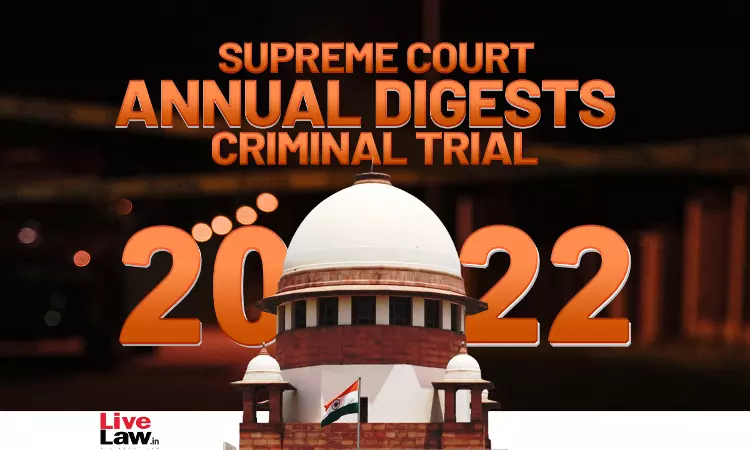Next Story
9 Jan 2023 2:51 PM IST
Criminal Cases Criminal Cases - Disposal of criminal cases by resorting to the triple method of plea bargaining, compounding of offences and under the Probation of Offenders Act, 1958 - Guidelines issued. Re: Policy Strategy for Grant of Bail, 2022 LiveLaw (SC) 889 Role of State Criminal Cases - Role of State - In criminal matters the party who is treated as the aggrieved party...

